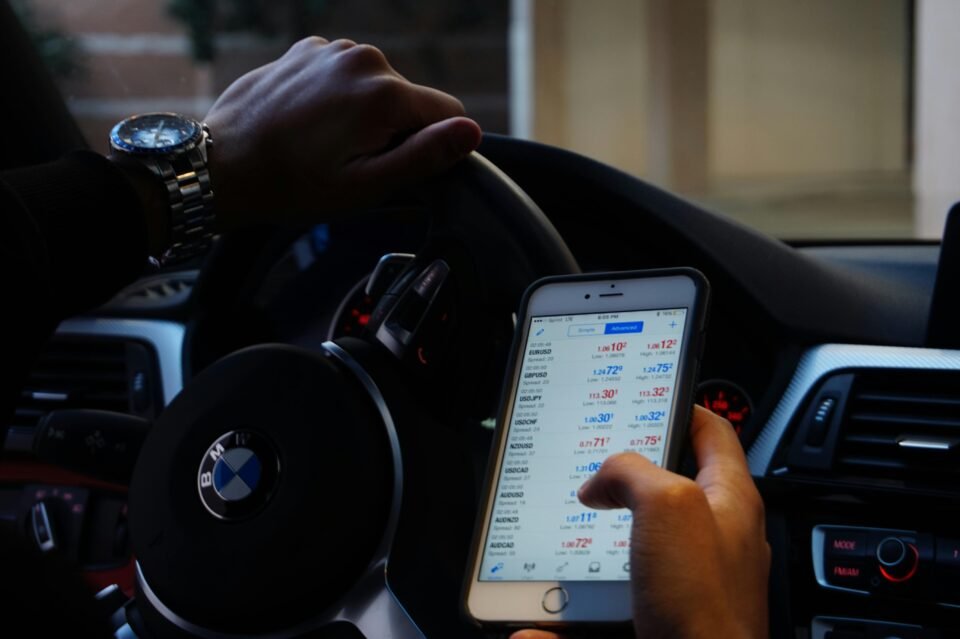Are you interested in entering the exciting topography of forex trading but don’t know where to begin? Forex dealing offers vast opportunities, but the sheer complexity can be intimidating for beginners. How can you confidently start and navigate the fast-paced forex market? This step-by-step guide breaks down everything you need to know to start dealing with forex effectively and build a strong foundation for success.
Understanding the Fundamentals of Forex Trading for Beginners
To get started, it’s essential to understand the basics of forex trading for beginners. Forex, or foreign exchange dealing, requires buying one currency while selling another, making it a global marketplace for currency exchange. Currencies like EUR/USD are traded in pairs, where traders theorise on the value of one currency against the other. The goal is to profit from changes in exchange rates. Before jumping into live trading, grasp fundamental concepts like how currency pairs work, what moves the market, and how to read forex charts.
Choose a Reliable Forex Broker
Your next step is to select a reliable broker that facilitates your trades. Brokers act as intermediaries between you and the forex market, so choosing one that suits your needs is crucial. Look for brokers regulated by reputable financial authorities to ensure your funds are safe and dealing conditions are fair.
Consider factors like fees, available dealing platforms, and customer support. Beginners should focus on brokers that offer educational resources and demo accounts, helping them practise before committing real money.
Learning Ways to Read Forex Charts and Indicators
Reading and interpreting forex charts is a skill every beginner must develop to succeed. Forex charts visually display price movements over time, and understanding them helps you make informed dealing decisions. Several chart types, such as line, bar, and candlestick charts, are famous due to their detailed insights into price action.
Beyond basic charts, indicators such as moving averages, relative strength index (RSI), and Bollinger Bands offer valuable data on market trends and potential entry or exit points. The more comfortable you become with charts and indicators, the better you predict market movements.
Create a Solid Forex Trading Plan
Successful forex trading hinges on having a well-defined dealing plan. This plan acts as a roadmap, guiding you on the right time to enter or exit trades depending on pre-set rules rather than emotions. A good plan includes your goals, risk tolerance, preferred dealing strategy, and currency pairs to trade.
For example, some traders prefer day trading, which involves short-term trades, while others focus on longer-term strategies like swing dealing. A solid plan keeps you disciplined and helps prevent unpredictable decisions that could lead to losses.
Practise on a Demo Account
Before you dive into live trading, use a demo account to practise risk-free. Most brokers offer demo accounts that simulate market conditions, allowing beginners to test their strategies without financial risk. This is an invaluable step for beginners, as it lets you familiarise yourself with the dealing platform and fine-tune your trading plan. Take advantage of this opportunity to learn from your mistakes, refine your skills, and gain confidence before transitioning to a live account with real money.
Start Small with Real Trading
Once you feel confident enough to start live trading, begin dealing small amounts. Forex dealing can be highly volatile, and even experienced traders face losses. Starting small allows you to manage risk while gradually building your knowledge and experience.
Use what you’ve learned from your demo account, stick to your trading plan, and always identify your risk with tools like stop-loss orders. As you gain more experience, you can gradually increase your trade size and explore different strategies to maximise potential profits.
Tips to Consider When Selecting a Trading Platform for Beginners
Selecting the correct platform is critical for successful forex dealing. Here are five things to keep in mind:
- Regulation and Security: Ensure the platform is regulated by a trusted financial authority to protect your funds.
- User-Friendly Interface: Beginners should choose platforms that are easy to navigate and come with tutorials or guides for added support.
- Fees and Spreads: To minimise trading costs and maximise potential profits, look for platforms with competitive spreads and low fees.
- Advanced Charting Tools: Ensure the platform offers robust charting tools and technical indicators to aid your analysis.
- Mobile Trading Options: Choose a platform that offers mobile trading capabilities so you can monitor your trades on the go, increasing your flexibility.
When beginning forex trading for beginners, starting with a pact of the basics, choosing the right broker, and practising on a demo account before trading with real money is essential. By selecting the right trading platform and focusing on risk management, you set yourself up for long-term success in the forex market.

